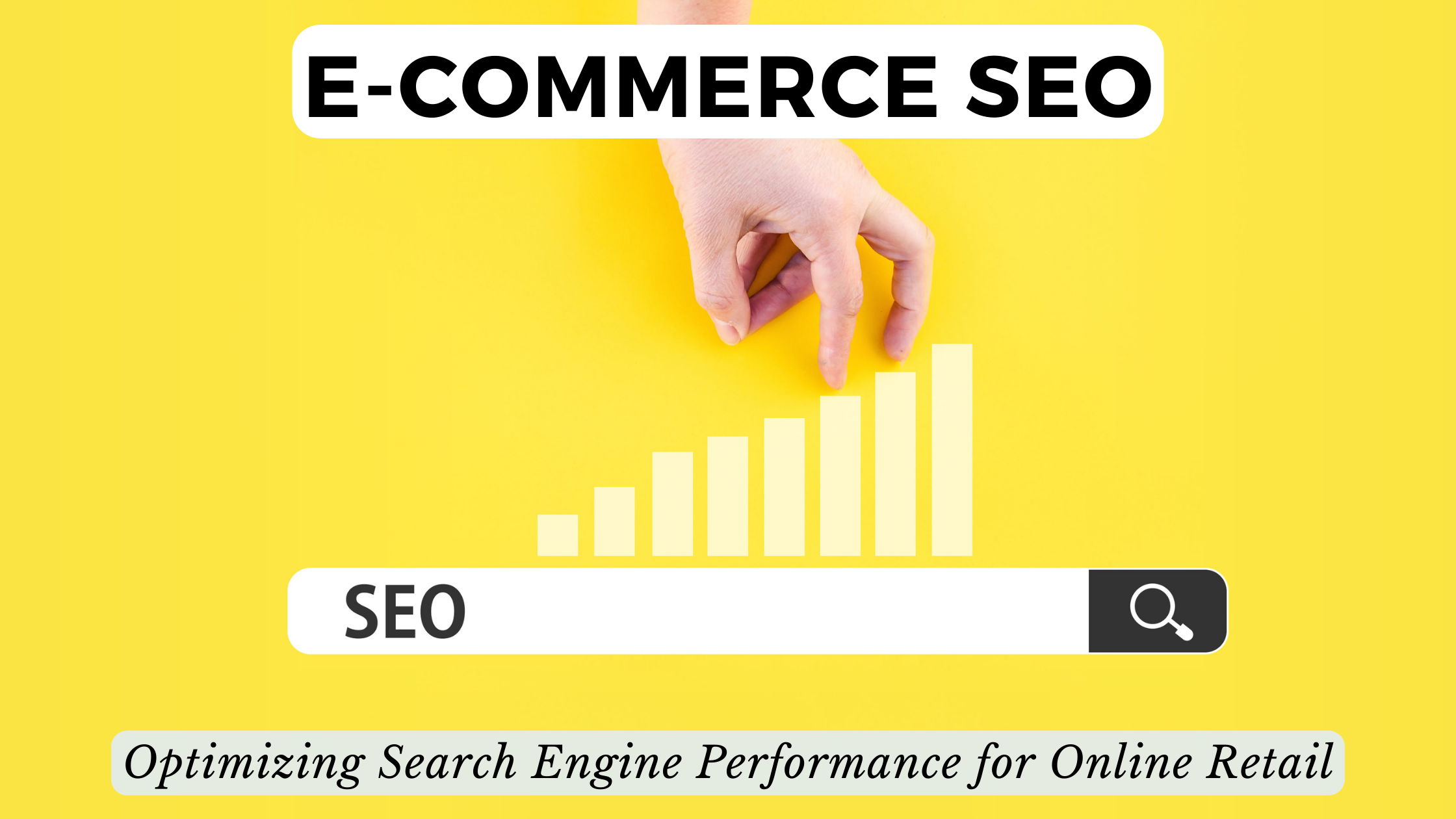E-commerce SEO: Optimizing Search Engine Performance for Online Retail


E-commerce SEO: Optimizing Search Engine Performance for Online Retail
In the competitive realm of online retail, mastering E-commerce SEO is paramount for achieving visibility, driving traffic, and boosting sales. This comprehensive guide explores the intricacies of optimizing search engine performance for e-commerce businesses. From foundational strategies to advanced techniques, we delve into the world of E-commerce SEO to provide actionable insights for businesses seeking online success.
Understanding E-commerce SEO
E-commerce SEO involves optimizing your online store to rank higher in search engine results. It encompasses various strategies, including keyword optimization, product page optimization, and building high-quality backlinks. Let’s explore key aspects that contribute to effective E-commerce SEO.
1. Keyword Research for E-commerce
Identifying relevant keywords is the foundation of E-commerce SEO. Understand the search terms your potential customers use and integrate them strategically into product descriptions, meta tags, and URLs. Leverage tools like Google Keyword Planner and SEMrush for comprehensive keyword research.
2. Optimizing Product Pages
Product pages are the heartbeat of an online store. Ensure each product page is optimized with unique and compelling product descriptions, high-quality images, and clear calls-to-action. Implement schema markup to provide search engines with structured information about your products.
3. Technical SEO for E-commerce Sites
Technical SEO is crucial for E-commerce websites. Focus on factors like site speed, mobile responsiveness, and secure HTTPS connections. Create an XML sitemap and submit it to search engines for efficient crawling and indexing.
4. Building Quality Backlinks
Backlinks remain a powerful factor in SEO. Foster relationships with influencers, collaborate with industry partners, and create shareable content to earn high-quality backlinks. Quality over quantity is key.
5. User Experience (UX) Optimization
A seamless user experience is integral to E-commerce success. Optimize navigation, streamline the checkout process, and ensure your website is mobile-friendly. Search engines prioritize websites that provide excellent user experiences.
Relevant SaaS Products for E-commerce SEO
Before concluding, let’s explore some relevant SaaS products to enhance your E-commerce SEO efforts.
1. SEMrush – E-commerce Toolkit
SEMrush offers a specialized toolkit for E-commerce SEO. From tracking competitors to analyzing backlinks, it provides comprehensive insights tailored for online retailers.
2. Yoast SEO
Yoast SEO is a WordPress plugin that aids in optimizing content for search engines. Its E-commerce functionality ensures that product pages are perfectly optimized for maximum visibility.
3. Ahrefs
Ahrefs is a versatile SEO tool that aids in backlink analysis. Monitor your website’s backlink profile and stay ahead in the competitive E-commerce landscape.
4. Google Analytics and Google Search Console
These free tools from Google are invaluable for E-commerce SEO. Analyze user behavior, track website performance, and address issues highlighted by Search Console.
Conclusion: Navigating the E-commerce SEO Landscape
E-commerce SEO is a dynamic field that requires ongoing attention and adaptation. By implementing the strategies outlined in this guide and leveraging relevant SaaS tools, you can elevate your online retail presence, attract your target audience, and drive conversions.
As we conclude our exploration of E-commerce SEO, consider Subscribed.FYI. This platform serves as the central hub for managing your SaaS subscriptions, including tools relevant to E-commerce SEO. By unlocking exclusive deals and gaining insights into diverse SaaS tools, Subscribed.FYI empowers businesses to optimize their online retail presence.
Relevant Links:
- SEMrush
- Yoast SEO
- Ahrefs
- Google Analytics and Google Search Console
- Subscribed.FYI
- Subscribed.FYI Deals








